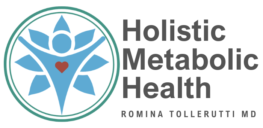Childhood obesity has become a pressing public health concern in the United States, with significant implications for the health and well-being of our children.
Holistic Metabolic Health addresses this issue through personalized dietary and lifestyle interventions, including low-carbohydrate nutrition when indicated, to support families in fostering healthier futures.
Understanding Childhood Obesity
According to the World Health Organization (WHO), the prevalence of overweight and obesity among children and adolescents aged 5 to 19 has increased significantly, rising from just 8% in 1990 to 20% in 2022. This trend is consistent among both genders; in 2022, 19% of girls and 21% of boys were classified as overweight.
The World Obesity Federation estimates that by 2025, there will be 206 million children and adolescents aged 5–19 years living with obesity, and 254 million by 2030.
According to the CDC, from 2017 to March 2020, the prevalence of obesity among U.S. children and adolescents was 19.7%. This indicates that approximately 14.7 million youths aged 2–19 years in the U.S. have obesity. Obesity affects certain groups more severely, including adolescents, Hispanic and non-Hispanic Black children, as well as children from lower-income families.
Health Risks Associated with Untreated Childhood Obesity
If left unaddressed, childhood obesity can lead to numerous health complications, both immediate and long-term. These include:
- Cardiovascular Issues: Elevated blood pressure and cholesterol levels increase the risk of heart disease.
- Type 2 Diabetes: Insulin resistance can develop, leading to diabetes at a young age.
- Respiratory Problems: Conditions such as asthma and sleep apnea are more prevalent among obese children.
- Psychological Effects: Low self-esteem, depression, and social isolation can result from weight-related stigma.
These health challenges impact children during their developmental years and often continue into adulthood, resulting in chronic health issues.
The Role of Personalized Dietary and Lifestyle Changes
Addressing childhood obesity requires a comprehensive approach tailored to each child’s unique needs. Personalized dietary and lifestyle modifications have proven effective in promoting sustainable weight loss and improving overall health.
Key components of this approach include:
- Nutritional Counseling: Educating families on balanced diets, emphasizing whole foods while reducing processed and high-sugar items.
- Physical Activity: Encouraging regular exercise tailored to the child’s interests and abilities to promote an active lifestyle.
- Behavioral Support: Implementing strategies to foster healthy eating habits and address emotional eating.
The Benefits of a Low-Carbohydrate Diet
Integrating a low-carbohydrate diet into a child’s nutritional plan can be particularly effective for addressing obesity and metabolic issues. When guided by medical professionals, therapeutic carbohydrate reduction (TCR) offers a safe, nutrient-dense, and sustainable solution.
A 2024 article in the Journal of Metabolic Health emphasizes that:
- TCR is not the same as extreme ketogenic diets (like the 4:1 ratio used for epilepsy). Instead, it is a balanced approach focused on improving metabolic health in conditions like type 1 diabetes, type 2 diabetes, and obesity.
- Well-formulated TCR plans provide all essential micronutrients and can exceed the daily recommended intake for children and adolescents.
- TCR diets include vegetables and whole foods, supporting the development of healthy habits and dietary quality.
- Concerns about growth delay, nutrient deficiencies, or eating disorders are not supported by current evidence when TCR is appropriately implemented.
- Children with type 1 diabetes who follow a TCR approach may experience better blood sugar control (lower HbA1c) and preservation of normal growth and brain development, compared to those following high-carb diets.
Moreover, rather than increasing the risk of disordered eating, a TCR diet—rich in real food and low in ultra-processed carbohydrates—may reduce the behaviors associated with emotional and uncontrolled eating.
When applied thoughtfully and under the proper guidance, TCR is not only safe but potentially transformative for children at risk of or living with metabolic conditions.
Take the First Step Toward Your Child’s Health
At Holistic Metabolic Health, we understand families’ challenges when addressing childhood obesity or overweight.
Our compassionate, evidence-based approach focuses on personalized nutrition and lifestyle strategies tailored to your child’s unique needs. Working together, we can empower your child to achieve a healthier, more vibrant future.
We invite you to schedule a consultation with us to assess your child’s situation and receive individualized recommendations.
Together, we can embark on a journey toward improved health and well-being for your child.

